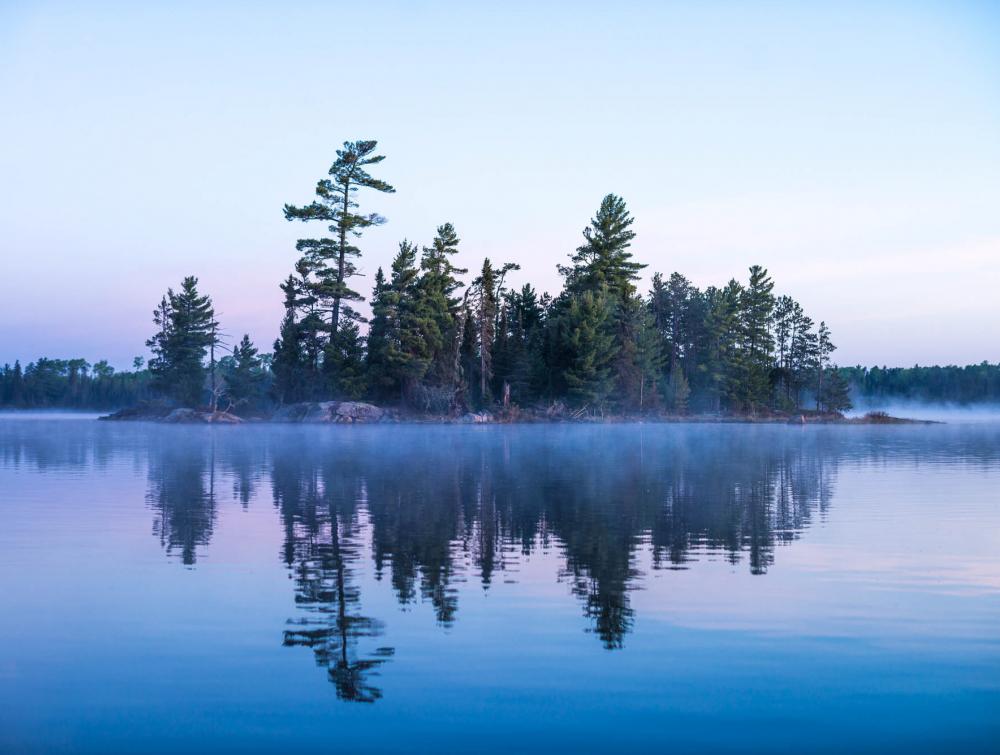Biden Admin Blocks Destructive Mining Near Boundary Waters

Erik Fremstad
The Wilderness Society celebrates major turning point in protections for Boundary Waters Wilderness’ watershed
Washington, DC (January 26, 2022) -- Today, the Biden administration canceled existing mining leases in the Boundary Waters Canoe Area Wilderness’ watershed. This announcement comes on the heels of an October 2021 move to reinitiate the process for a 20-year mineral withdrawal and resulting 2-year moratorium on new mineral leasing and permitting. The Wilderness Society applauds this decision and celebrates the administration’s commitment to safeguarding America’s most visited wilderness.
“The Interior Department’s decision to cancel these illegally renewed mineral leases is a victory for the Boundary Waters and the people who love them. It represents an important step in saving more nature and reaching the Biden administration’s America The Beautiful conservation goals,” said Jamie Williams, President of The Wilderness Society. “If we sacrifice the health of the most-visited, water-rich, and beloved wilderness in the nation to extractive industry, where will we draw the line? The Boundary Waters Canoe Area Wilderness is simply too precious and too integral to the lives of Minnesotans to take a chance on a risky, toxic mine. We are thrilled that the Biden administration recognizes the importance of safeguarding the Boundary Waters, and look forward to the day that permanent protections are passed in Congress.”
Today’s decision cancels two mining leases held by Twin Metals Minnesota, a fully owned subsidiary of Chilean mining giant Antofagasta. The Interior Department’s decision recognizes that the previous administration unlawfully renewed the leases, without compliance with applicable laws and regulations and contrary to the U.S. Forest Service’s fully operable 2016 decision denying consent to renewal of the leases, which was based on the unacceptable risks they pose to the Boundary Waters.
Spanning more than one million acres, the Boundary Waters Canoe Area Wilderness is home to more than 250 wildlife species and is the nation’s most visited wilderness area. It is a powerhouse for the local economy, generating a $77-million outdoor recreation economy which supports more than 17,000 local jobs. A 2020 Harvard Economics study determined that protecting the public lands surrounding the Boundary Waters would lead to more jobs and more income for local communities than those projected by Twin Metals Minnesota.
More than 248,000 individuals recently expressed to the Bureau of Land Management that they support administrative protection of more than 234,000 acres of the headwaters of the Boundary Waters. Bipartisan polling from 2020 also suggests that 68% of Minnesotans support permanent protections for the Rainy River watershed, which flows through the Boundary Waters.
The Boundary Waters Canoe Area Wilderness is especially susceptible to pollutants from acid mine drainage and other pollution associated with sulfide-ore copper mines, which can contaminate the land surface, soils, and ground and surface water. A peer-reviewed report by Earthworks studied fourteen sulfide-ore copper mines representing 89% of current U.S. copper production. Of those fourteen mines, all had experienced some sort of pipeline spill or other accidental release. Thirteen of the fourteen (92%) had experienced water collection and treatment failures that resulted in significant impacts to water quality. The pollution from sulfide mining is nearly impossible to contain and can last for hundreds, even thousands of years.
Earlier this year, Representative Betty McCollum (D-Minnesota) reintroduced The Boundary Waters Wilderness Protection and Pollution Prevention Act (H.R. 2794), which would permanently withdraw more than 234,000 acres of the Superior National Forest, the same acreage included in the 20-year administrative mineral withdrawal, from new sulfide-ore copper mining leases.
###
CONTACT:
Jen Parravani, Communications Manager
jen_parravani@tws.org
(202) 601-1931
